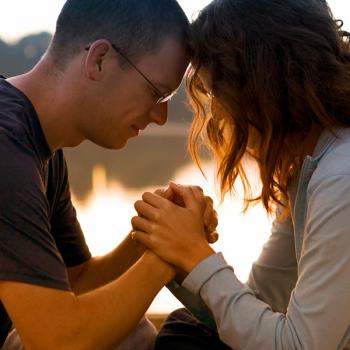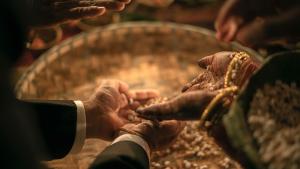April is National Sexual Assault Awareness month, as well as National Child Abuse Prevention month. Now that the #MeToo movement has merged with the #NoMore movement, author and speaker Shannon M. Deitz wants to continue the discussion offering a voice for survivors.

Read more in a Q&A below about her work through Hopeful Hearts Ministry—a Christian advocacy non-profit organization that works to alleviate the suffering and restore the self-worth of survivors of abuse.
What do people need to understand about sexual assault and child abuse? How have these tragic crimes continued to take place and have they grown over the past 5 years?
The more we can bring awareness to both issues, the louder survivors can be with their stories, and the more prevalent the issue can become in the public eye. The statistics (from what is reported) rarely change. 1 out of 6 women will be sexually assaulted in their lifetime and 15% of them will be under the age of 12 the first time they are assaulted. Often when one is assaulted the shame and guilt are embedded so deep that their defenses become lower and they find themselves in the same situation repeatedly throughout their lifetime.
These crimes continue to remain high in numbers because it is such a difficult and uncomfortable subject. We must pay attention and react and respond instead of turning a blind eye when we notice something out of the ordinary, or when a friend admits to an assault.
One young man confided when he was a freshman in college and rushing a fraternity he walked out of the bathroom at his frat house’s party to find a line of his ‘brothers’ waiting to ‘rape’ a young woman in the bedroom. While he didn’t participate, he also didn’t do anything to help the young woman. To do something would have meant to take a stand, to cause waves, and people instinctively shy away from confrontation. Yet that moment missed to help her still haunts the young man today.
These crimes are not fading, yet the more we continue to bring awareness the better chance those listening to other survivors’ stories will be apt to recognize the abuse they are suffering and want to speak out, and or make safer decisions. In bringing awareness we offer the opportunity for survivors to speak out and help others to know that they are not alone and to inform generations to come, encouraging them to get beyond the discomfort of confrontation.
*statistics taken from RAINN and Child Help
What do people need to understand about survivors of abuse?
Survivors of abuse are not fragile. They are strong, worthy individuals who have overcome a great amount of suffering whether it was physical, sexual, or verbal. Every form of abuse affects the person emotionally, lowering their self-esteem and sense of worth. Often survivors will hide or bury the facts and the deep effects of the abuse out of fear, shame, and lack of support. The best way for a survivor to heal from the abuse is to give a voice to what has been done or said to them; to be heard and to know they are supported and loved.
What has inspired you to reach out to others?
I am a survivor of rape and incest. The years I kept the facts of these traumas within me led me down some dark paths that were filled with bad decisions based on my lack of worth and self-esteem. I want to educate and reach out to other survivors before they get entangled in that dark path and make decisions that can affect them for the rest of their life, adding to the trauma of what has been done or said to them in the past.
How has sharing your story with others helped you in your journey to healing?
The more you share the truth about your experience the easier it is to accept it and move passed it in order to embrace your present and future. By sharing my story through speaking to groups and leading retreats, I find that it gives me strength and fortifies the healing process. What has been ‘done’ to me is a part of who I am, but it doesn’t define who I am. In fact, I’ve come to the place where I can thank God for every aspect of my life, the dark and ugly moments, along with the joyous times, because He has brought good from it all and allowed me to recognize that I am stronger because of it.
Low self-esteem, especially among teens, has become a national epidemic. What do you want someone struggling with feelings of low self-worth to understand?
My instinct is to respond, “You are worthy! You are unique and there is no one else in this world just like you and this world needs you and the skills and talents YOU have because each one of us has been given a specific purpose to use these talents and gifts and no one can replace you.”
But I also have been in a place that I have felt extreme unworthiness and insecurity. I know that if I heard someone say that I’d doubt what those talents or gifts were, because I wasn’t like everyone else. To that I say, “Would being like everyone else make you happy? Would going against who you are, what sparks interest and joy inside of you just to get others attention bring you joy? Most likely not.”
In this day and age of social media, self-worth is defined by the number of followers we have on Instagram or how many ‘likes’ they give to your posts. It is important to realize that those are numbers and most of those people have so many numbers because they ‘follow’ and ‘like’ everyone just to get more numbers. When it comes down to knowing you, who knows you best?
You, my friend, are worthy of life and others would be so lucky to know you, who you really are and share in the gifts and talents you’ve been given.













